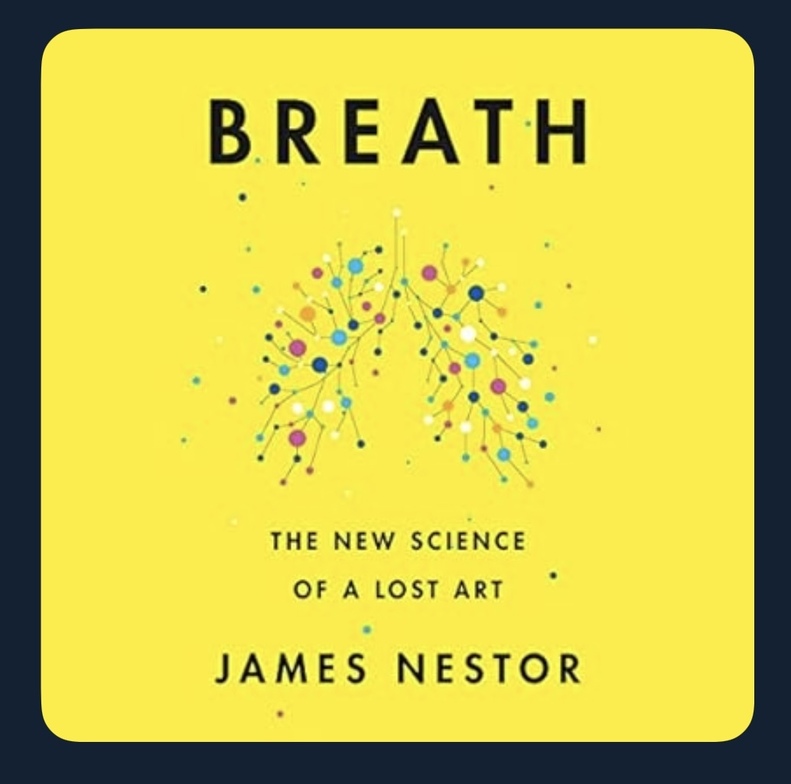
This book is why I now sleep with my mouth taped shut—sounds intense, right? It definitely was at first! I started cautiously with a small piece of tape across the middle of my lips, ready to breathe through my mouth if needed. But surprisingly, I’m still here, and the benefits of nasal breathing while sleeping have been incredible. I've noticed improved immunity, deeper sleep, and faster recovery—all from this simple change.
The research in this book about breathwork, nasal breathing, and the health issues linked to improper breathing is truly eye-opening. It made me realize how often I breathe through my mouth during the day, and how just a few focused nasal breaths can instantly calm my body. Now, I'm more mindful of my breathing, incorporating breathwork into meditation, yoga, and even using it for recovery and power during intense workouts.
Give this book a read and discover the transformative power of nasal breathing! Join the growing community of nasal breathers—your body will thank you! Enjoy the full summary below.
"Breath: The New Science of a Lost Art" by James Nestor is a fascinating exploration of how the way we breathe affects our health, performance, and well-being. Through a blend of scientific research, personal experimentation, and historical analysis, Nestor uncovers the forgotten art of breathing and its profound impact on the human body.
The book reveals that many of the chronic health issues we face today—such as asthma, anxiety, sleep apnea, and even dental problems—can be linked to improper breathing. Nestor travels the world to explore ancient breathing techniques and modern practices, demonstrating how simple adjustments to our breathing habits can lead to remarkable improvements in health and longevity.
Nestor delves into the science behind nasal breathing, showing how breathing through the nose, rather than the mouth, can improve oxygen absorption, reduce stress, and enhance overall well-being. He also explores the power of slow and controlled breathing, revealing how it can activate the body’s parasympathetic nervous system, promoting relaxation and healing.
The book also examines how the evolution of human skulls has contributed to modern breathing problems and how rediscovering age-old techniques can counteract these issues. Nestor shares insights from elite athletes who use specific breathing practices to boost their performance, and he highlights the importance of proper breathing during sleep to prevent disorders like sleep apnea.
Key Takeaways:
- Nasal Breathing: Breathing through the nose is crucial for optimal health, improving oxygen intake, filtering air, and enhancing overall well-being.
- Slow and Controlled Breathing: Practicing slow, deep breathing can reduce stress, lower heart rate, and activate the body’s relaxation response.
- Breathing and Evolution: Changes in human facial structure over time have impaired our natural ability to breathe properly, contributing to various health issues.
- Breathing for Performance: Elite athletes use controlled breathing techniques to enhance endurance, focus, and recovery.
- Impact on Sleep: Proper breathing is essential for preventing sleep disorders like sleep apnea and improving the quality of sleep.
- Health Benefits: Correcting poor breathing habits can help manage chronic conditions like asthma, anxiety, and even dental issues.
- Ancient Techniques: Breathing practices from ancient cultures, such as pranayama, offer valuable insights for improving modern health.
- Breathing and Longevity: By optimizing the way we breathe, we can reduce inflammation, improve cardiovascular health, and potentially increase our lifespan.

Jill Saban
Contact Me



